Last session witnessed amazing extra-curricular events at Royal Legends Academy, among which is the vibrant cultural day activity where students immersed themselves in Nigeria’s rich and diverse cultural heritage encompassing native way of dressing, cuisine-food, traditional marriage drama, music, songs, dance and drinks during our” Culture Inclusive Week” program. This experimentally exciting learning program gave students the platform to showcase the Nigerian indigenous food varieties and sartorial traditions of major ethnic groups to bequeath cross-cultural appreciation among our student body. The event was graced by the Bale of Owode Ibelefun, Ibeshe, Ikorodu- Chief Kareem Ishola Shonoike, the Parents-teachers Forum members, distinguished invited guests, families and friends members of the students’ body. Below is a detailed account of our immersive cultural journey.
The Yoruba Traditional Attire
Women Regalia:the female Students modeled the elegant Iro (wrapper), Buba (blouse), and Gele (head-tie) ensemble, with fabrics ranging from handwoven Aso-Oke to Adire-tie-dye textiles, with colorful accessories.
The Yoruba Traditional Attire
Women Regalia:the female Students modeled the elegant Iro (wrapper), Buba (blouse), and Gele (head-tie) ensemble, with fabrics ranging from handwoven Aso-Oke to Adire-tie-dye textiles, with colorful accessories.
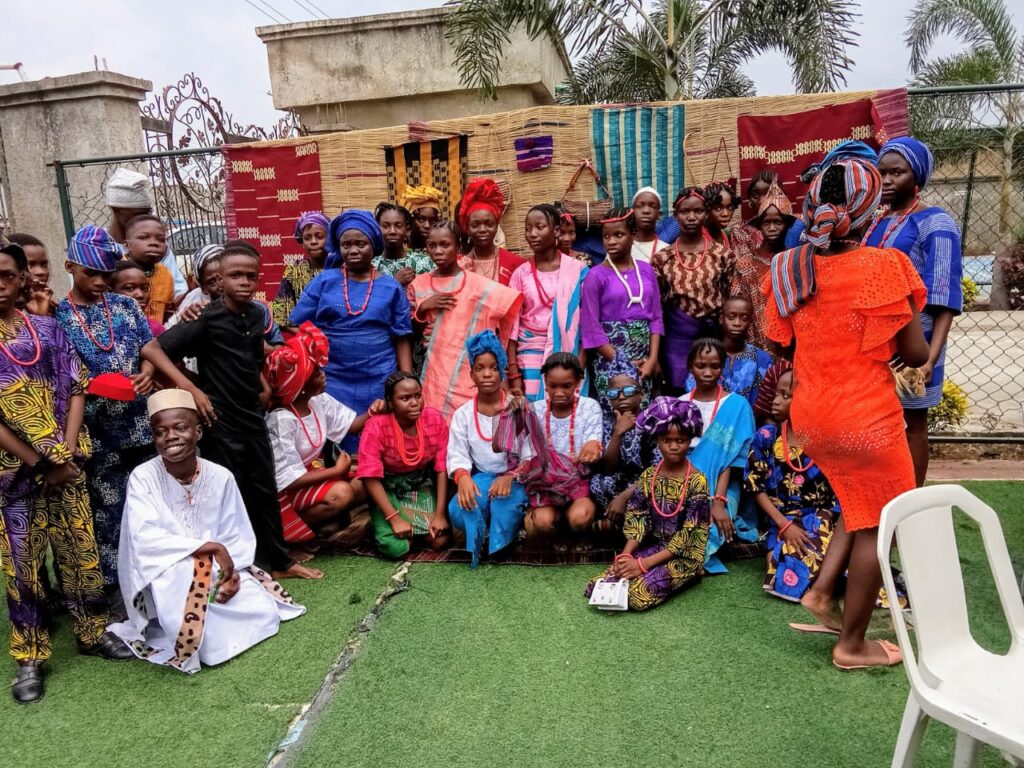
Men’s Regalia: The male students adorned themselves with the majestic Agbada robe system demonstrated through Awosoke (outer robe), Awotele (under-shirt), and Sokoto (trousers), accessorized with Fila Abeti Aja caps.
Indigenous Cuisine:the main course-meal prepared and served wasAmala with Abula Trio- the iconic brown yam flour paste served with a trio of soups- nutty Gbegiri (bean puree), Ewedu (jute leaves), and spicy Efo Riro (spinach stew) .
Accompanied Signature Dishes: peppery Asun (spiced grilled goat meat ), and steamed Moi-Moi bean pudding wrapped in aromatic Ewe Eràn leaves.
Indigenous Cuisine:the main course-meal prepared and served wasAmala with Abula Trio- the iconic brown yam flour paste served with a trio of soups- nutty Gbegiri (bean puree), Ewedu (jute leaves), and spicy Efo Riro (spinach stew) .
Accompanied Signature Dishes: peppery Asun (spiced grilled goat meat ), and steamed Moi-Moi bean pudding wrapped in aromatic Ewe Eràn leaves.

Igbo Cultural Exploration
The Igbo Cuisine:Ofe Onugbu (bitter leaf soup thickened with cocoyam) with assorted smoked dried fish and cow meat soup accompanied by pounded yam and fufu – pounded yam was served.
Accompanied Signature Dishes: spicy Nkwobi (cow meat in palm oil paste), and Abacha (cassava salad with ugba).

Sartorial Identity:
The Igbo Symbolic Adornment: The Isiagu top (featuring lion-head embroidery) was worn with red caps by boys accessorised with walking sticks, while female students were dressed in blouses and head gears, over Ankara or George fabric in multiple layers, accessorised with beads.
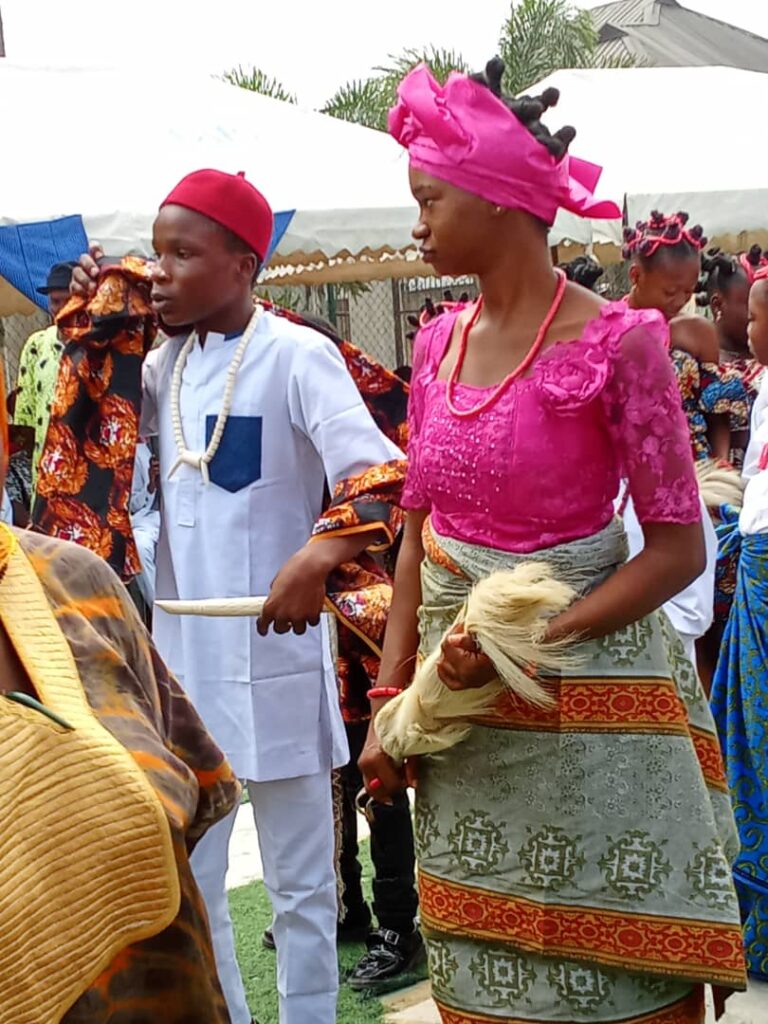
Hausa Cultural Immersion
Culinary Signature: Tuwo Shinkafa (rice pudding) with Miyan Kuka (baobab leaf soup) and spicy Suya (skewered beef rubbed with yaji spice).
Accompanied Drink: fermented Kunun Zaki drinks.
Native Regalia:Boys wore the grand Babban Riga (embroidered gown) with elaborate Hula caps, while girls modeled Zani wrappers with matching blouses and headscarves.
Body Art:Henna workshops (Lalle) taught intricate hand/feet designs symbolising marital status and festive occasions.
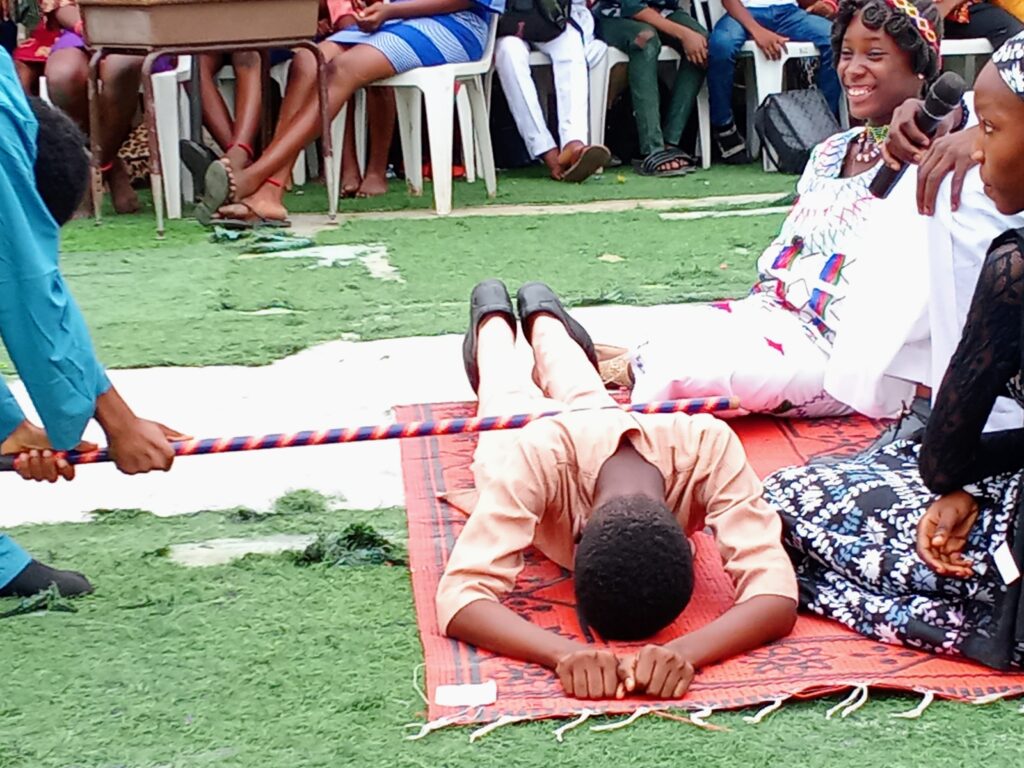
Edo & Urhobo Highlights:
Royal Benin Cuisine:signature Black Soup known as Oghwo Ami- a dark flavourful soup cooked using slightly burned ground ugba or bitterleaves prepared with smoked fish, stock-fish, cow skin or goat meat was served with pounded yam.
Urhobo Owo soup: a festival, royalty or special occasion soup cooked with palm oil base, potash, beef, dried smoked bush meat with crayfish and starch or water yam to thicken the soup eaten with Usi -starch or bioled yam.
Iconic Accompanied Dish: Banga soup prepared used palm fruit extract, catfish, and scent spices and vegetables served with starch staple.
Native Regalia: the male students wore elaborate beads on their neck over white lace shirt with a George or white wrapper tied around the waist, accessorised with a walking stick, while the female wore Ivie-beads on their necks over Lace Blouse and George layered wrappers tied on their waist, and some had their heads adorned with royal beads crown, and others tied Igele-head gear on their heads in elaborate styles.


Efik/Ibibio Cultural Elements: Iconic Dressing: the male students wore Usobo-wrappers tied around the waist paired with a long sleeve Etibo shirt, with a walking stick, while the female students dressed themselves on George wrappers, lace blouse and headscarf with jewelries.
Iconic dishes: the nutritious Edikang Ikong (pumpkin/water-leaf soup) and Afang soup prepared with pumpkin and water-leaf vegetables, cooked with palm oil, periwinkle, dried fish and beef, served with Fufu, or pounded Yam were eaten. The cultural day event also featured the following dramas laced with Chanting, Music, Dancing, and Narrative Story-telling.
The Sango famous ‘Oba Ko So-The Oba did not Hang’ drama.
Igbo Traditional Marriage- Introduction- kola -Nut Breaking Tradition.
Hausa/Fulani Sharo marriage tradition-featuring groom eligibility flogging ceremony.
Below are feature pictures of the exciting event.
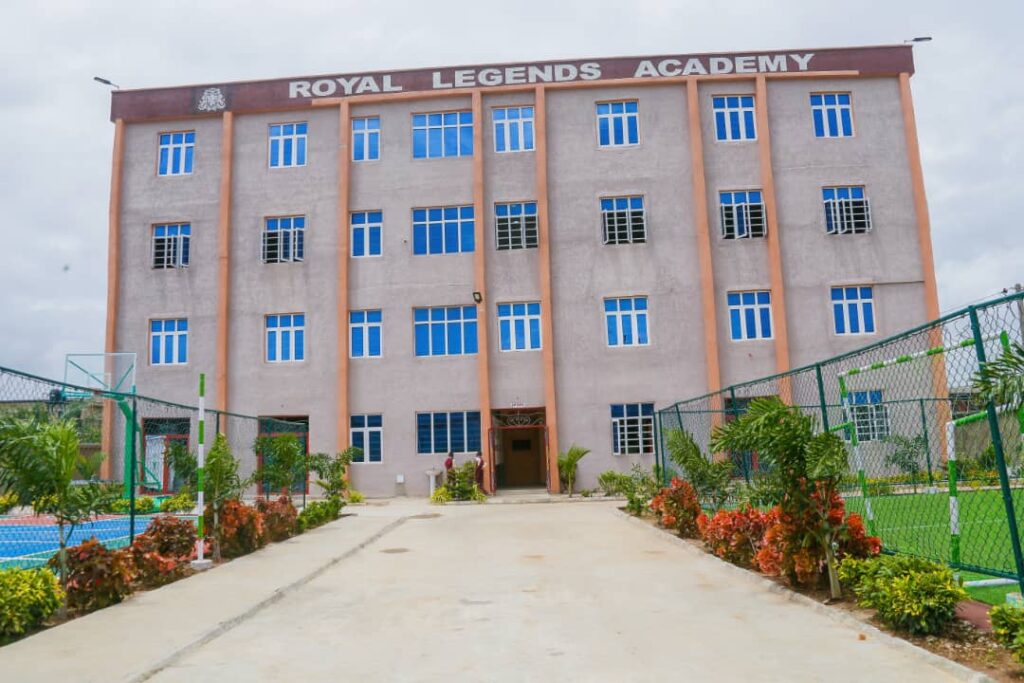
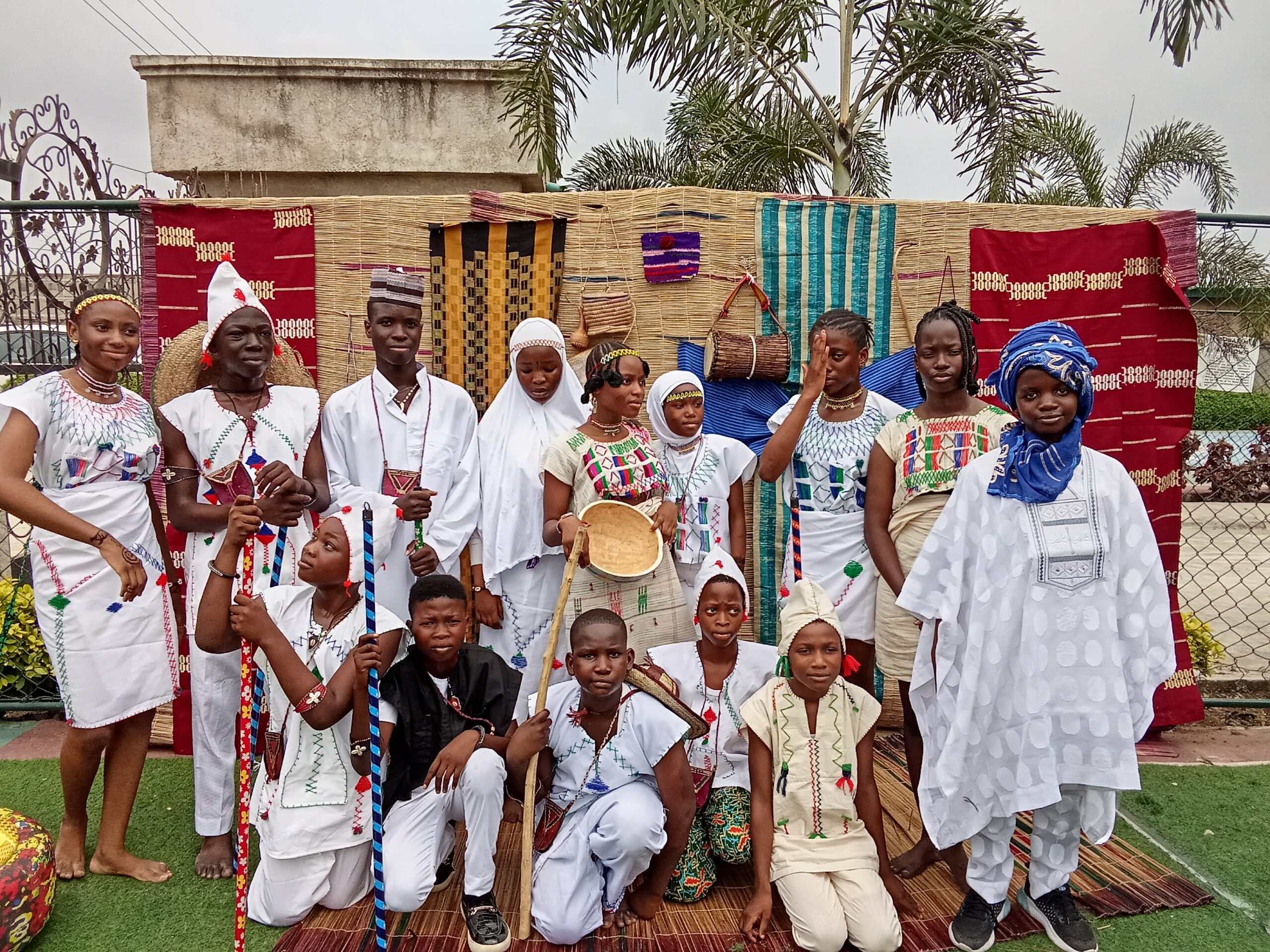

Leave a Reply